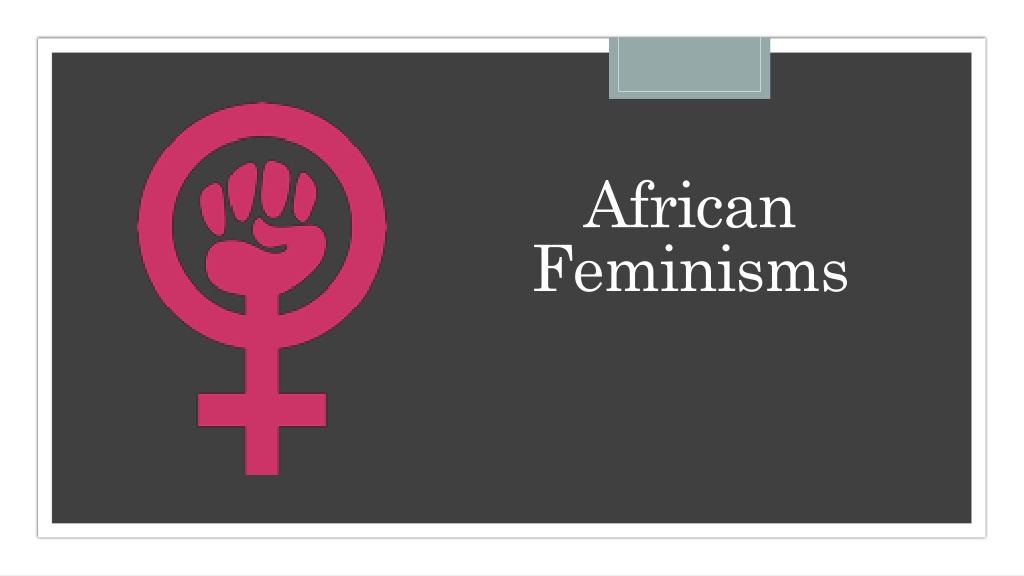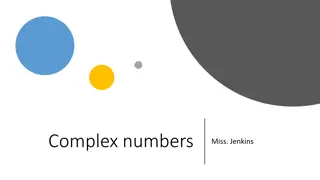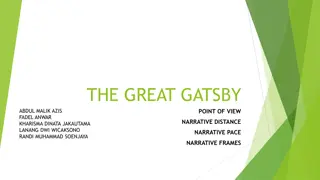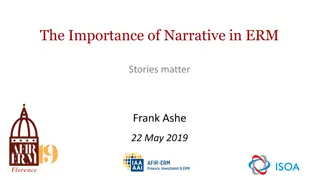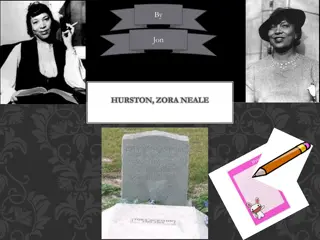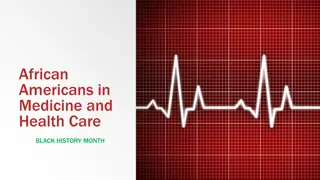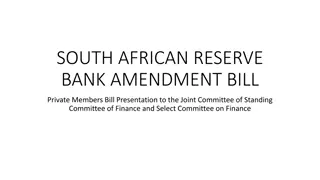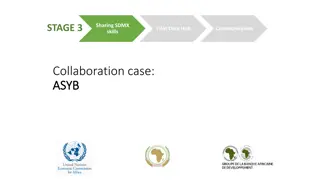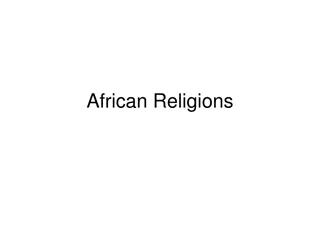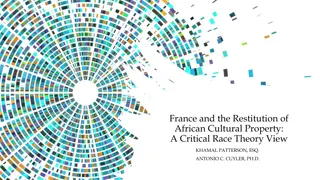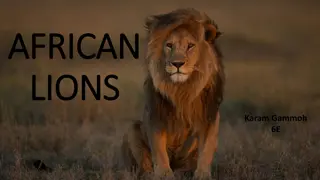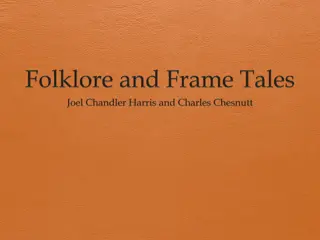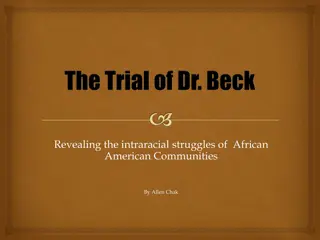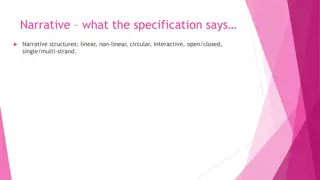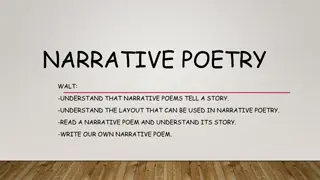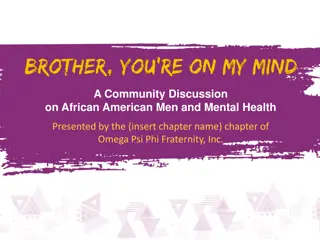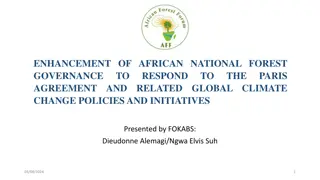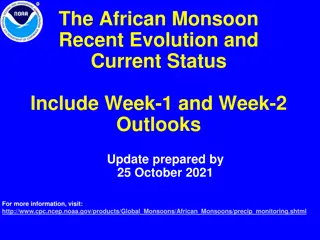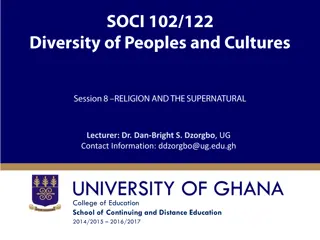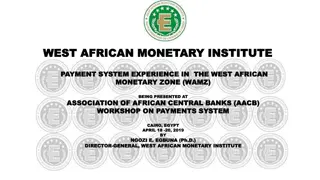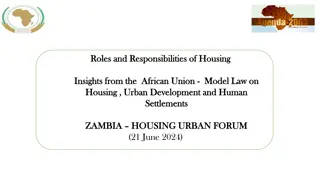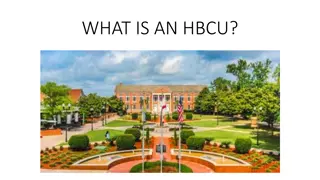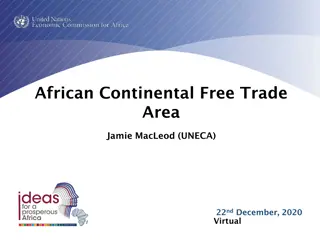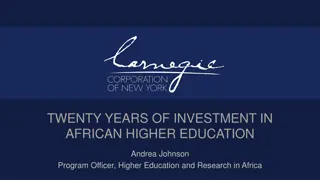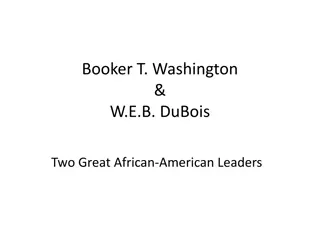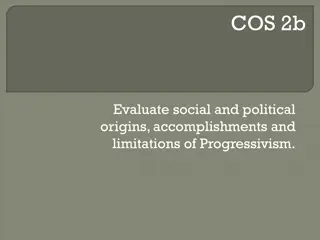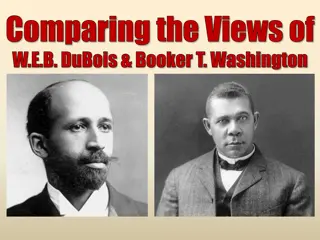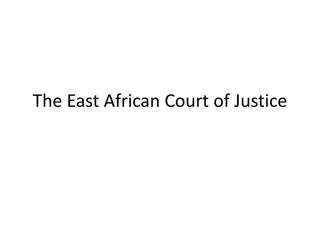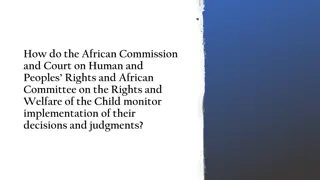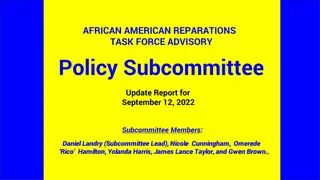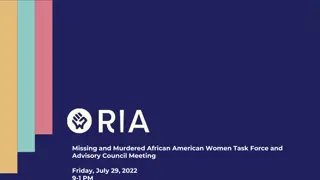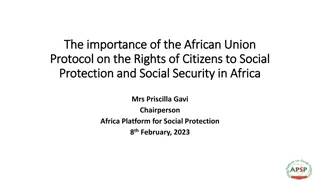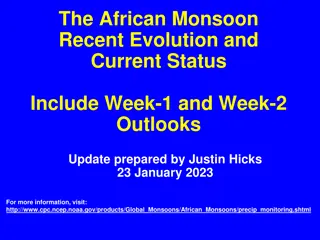Understanding African Feminisms: A Complex Narrative
African feminisms encompass a diverse landscape of ideologies and movements, stemming from historical struggles and the fight for gender equality. From early pioneers like Adelaide Casely-Hayford to modern-day activists challenging mainstream feminism, African women have been pivotal in shaping a multifaceted feminist discourse that addresses unique challenges and perspectives. The evolution of African feminisms reflects a rich tapestry of cultural, social, and political contexts, highlighting the intersectionality inherent in the fight for women's rights and empowerment.
Download Presentation

Please find below an Image/Link to download the presentation.
The content on the website is provided AS IS for your information and personal use only. It may not be sold, licensed, or shared on other websites without obtaining consent from the author. Download presentation by click this link. If you encounter any issues during the download, it is possible that the publisher has removed the file from their server.
E N D
Presentation Transcript
African Feminisms
Dictionary definition the belief and aim that women should have the belief and aim that women should have the same rights and opportunities as men; the same rights and opportunities as men; the struggle to achieve this aim the struggle to achieve this aim
Not just one kind of feminist Feminism is not homogenous, there are different forms of feminisms, which have a complicated history of values, ideas and people that are sometimes in conflict with one another Feminisms have developed over time 1stwave in late 1800 s organised around the right to vote, 2ndwave 1960s and 70s - Mainstream feminism focused on institutional reforms, which meant reducing gender discrimination, giving women access to male-dominated spaces, and promoting equality. Radical feminism wanted to reshape society entirely, saying that the system was inherently patriarchal and only an overhaul would bring liberation 3rdwave 1990s started to grapple with other aspects of their identity, such a sexual orientation and gender identity, and was characterised by embracing individuality and rebellion - intersectionality became understood to be central to the feminist movement 4thwave said to have begun around 2012. The use of social media for activism has propelled the movement firmly into the technological age
African critiques of feminism Throughout the various waves of feminism there has been ongoing criticism of white feminism, which ignores the unique struggles of women of colour and marginalises non-white feminist s knowledge and ideas Some feminist ideas were considered to radical and contrary to African culture and traditions Western feminists weren t focused on the bread and butter issues affecting African women
African feminism African feminisms are complex and not homogenous because African women are not homogenous As an interest group, African feminism can be traced to the early twentieth century with women like Adelaide Casely-Hayford, the Sierra Leonian women s rights activist referred to as the African Victorian Feminist who contributed widely to both pan-African and feminist goals, Charlotte Maxeke who in 1918 founded the Bantu Women s League in South Africa African feminism as a movement stems also from the liberation struggles where women fighters fought alongside their male counterparts for state autonomy and women s rights African feminist icons from this period are women like the Mau-Mau rebel, Wambui Otieno, the freedom-fighters Lilian Ngoyi, Albertina Sisulu, Margaret Ekpo and Funmilayo Anikulapo-Kuti among many others who fought against colonialism as well as patriarchy.
Postcolonial African Feminism Radical African Feminism Radical African Feminism focuses on challenging patriarchy and traditional cultural and social norms and challenge the heteronormative family structure, as well as promote the rights of LGBTQI persons, and sex workers, as opposed to more conservative African feminists who remain distinctly pro-heterosexual Afrocentric African Feminism Afrocentric African Feminism is marked by grappling with the un-Africanness and westernisation, debating and disagreeing about conflict between western and African values. Grassroots African Feminism Grassroots African Feminism eveloved after the landmark UN decade for women 1975 1985 which resulted in of coalition building as well as funding for feminist activism and scholarship across the continent and diaspora. It focused on so called bread and butter issues such as poverty reduction, anti-FGM and violence prevention but also with intellectual activism concerning these issues.
African feminisms today Liberal African Feminism Liberal African Feminism has successfully championed feminist discussions about domestic gender roles, gender gaps and sexual rights. Millennial or 4th wave African Feminism Millennial or 4th wave African Feminism may be considered the most explicitly feminist generation in Africa. Is marked by student protesting, fierce, vociferous and woke new voice of African feminism, organisation of marches and demonstrations, coupled with high activity on social media. It has been very influential in calling out sexual violence against women, as the current 16 days campaign shows. Afropolitan Afropolitan Feminism western discourses that malign Africa and connect women on the African continent to African women in the diaspora in a transnational and future-oriented approach to feminist liberation. Feminism the work and activism of 21st century Africans in Euro-America who challenge
Young women Africa is a young population. Children under age 15 account for 41% of the population in 2017 and young persons aged 15 to 24 account for an additional 19% representing 60% of Africa's population, making Africa the world's youngest population. There is growing recognition of the role that youth can play in governance and political decision making. Young women are tech savvy Digital feminism will be instrumental in mobilizing for action across many gender-sensitive topics as and movements such as #FeesMustFall #MyDressMyChoice
Role of men can men be feminists Yes. While they may not use the term men do subscribe to feminist ideals which is a world where women and men have equal rights. Increasing consensus, especially in Africa about the importance of involving men in the struggle for women s rights and empowerment. As beneficiaries of, and those who uphold patriarchy, men have to be brought along. Men need to be engaged at all levels, as fathers, brothers, husbands, traditional leaders, politicians, faith-based leaders to be advocates for women s equal rights in all spheres of society. Men can be true allies by: understanding their privilege and the ways in which their behaviour and actions perpetuate their dominance in society. working alongside women rather than on behalf of women vehemently oppose harmful cultural practices and beliefs that put women and girls lives at risk. calling out all sexism (subtle and overt) in private and public spaces.
Why we still need feminism Feminist and women s rights organisations are responsible for the significant gains in advancing women s rights over the last two centuries, But struggles for political, social, economic and climate justice are far from over. In the US the recent overturning of the 1973 court case that gave women the right to choose to have an abortion is a stark example of the growing backlash, from conservative actors and governments, against women s human rights. Women are still under-represented in all areas of decision making in public and private spheres; there are still unacceptably high levels of SGBV many countries women still do not have autonomy over their bodies and right to make the choices about who they will marry, whether and how many children they will have, and the spacing of these.
We should all be feminists Chimamanda Ngozi Adichie Feminism is about the social, economic and political equality of the sexes. It demands an annihilation of the gender hierarchy and is not about women s rule over men as is often misinterpreted. is not about While weighed down by negative interpretations, the term feminism recognises that for centuries, a specific group, i.e., women, were and continue to be othered and oppressed.
Resources Discussion paper for comments on WVL website Op-Ed on GL and WVL website
Questions for discussion Is discomfort with/ rejection of the term Feminism about ideological differences, or is it a matter of language? Is feminism Un-African? Why? What does feminism look like in South and Southern Africa where do we sit on the spectrum? If not the term feminism, then what? What does Feminism look like in the future?
